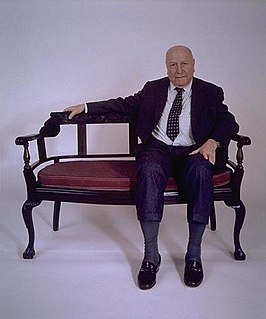A Quote by Margaret J. Wheatley
Leadership is a series of behaviors rather than a role for heroes.
Related Quotes
We never used to blink at taking a leadership role in the world. And we understood leadership often required something other than drones and bombs. We accepted global leadership not just for humanitarian reasons, but also because it was in our own best interest. We knew we couldn't isolate ourselves from trouble. There was no place to hide.
We have an industrial base - one that, if made to take orders rather than being allowed in the vacuum of leadership to create them, if enabled by the elimination of cost-plus contracting to produce and achieve rather than waste and receive, could make something worth the cost rather than making work that costs us our dreams.
We were all expecting to finish [Downton Abbey] after Series 1, actually. And then, it got extended to Series 3, and that's when two of our much loved and much missed friends left. And then, it was going to be done with Series 5, but Julian Fellowes said, "I'd like to do one more." So it's been a series of extensions, rather than wondering how much longer we can go on for.
But I'd rather help than watch. I'd rather have a heart than a mind. I'd rather expose too much than too little. I'd rather say hello to strangers than be afraid of them. I would rather know all this about myself than have more money than I need. I'd rather have something to love than a way to impress you.
The single biggest barrier to effective leadership is, in my view, the leadership industry itself. Instead of telling people the skills and behaviors they need to be effective in getting things done, we tell them almost the opposite - blandishments about how we wish people would be, and how we wish workplaces were. That information is worse than useless as, to the extent people believe it, they often wind up losing their jobs.
Leadership is much less about what you do, and much more about who you are. If you view leadership as a bag of manipulative tricks or charismatic behaviors to advance your own personal interest, then people have every right to be cynical. But if your leadership flows first and foremost from inner character and integrity of ambition, then you can justly ask people to lend themselves to your organization and its mission.





































